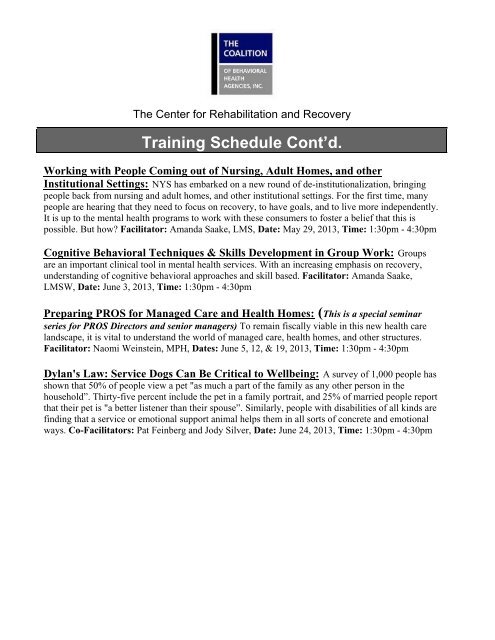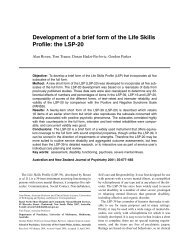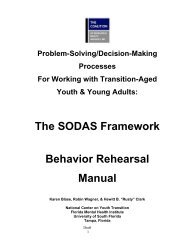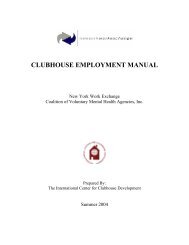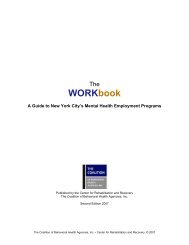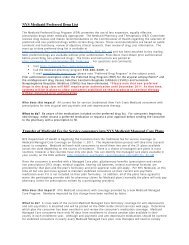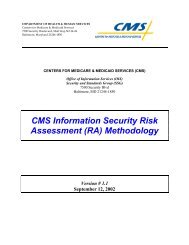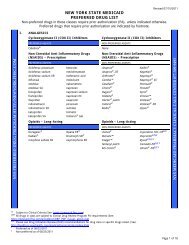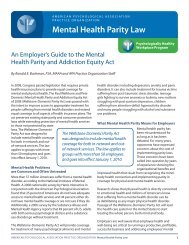Training Schedule - The Coalition of Behavioral Health Agencies, Inc.
Training Schedule - The Coalition of Behavioral Health Agencies, Inc.
Training Schedule - The Coalition of Behavioral Health Agencies, Inc.
Create successful ePaper yourself
Turn your PDF publications into a flip-book with our unique Google optimized e-Paper software.
<strong>The</strong> Center for Rehabilitation and Recovery<strong>Training</strong> <strong>Schedule</strong> Cont’d.Working with People Coming out <strong>of</strong> Nursing, Adult Homes, and otherInstitutional Settings: NYS has embarked on a new round <strong>of</strong> de-institutionalization, bringingpeople back from nursing and adult homes, and other institutional settings. For the first time, manypeople are hearing that they need to focus on recovery, to have goals, and to live more independently.It is up to the mental health programs to work with these consumers to foster a belief that this ispossible. But how? Facilitator: Amanda Saake, LMS, Date: May 29, 2013, Time: 1:30pm - 4:30pmCognitive <strong>Behavioral</strong> Techniques & Skills Development in Group Work: Groupsare an important clinical tool in mental health services. With an increasing emphasis on recovery,understanding <strong>of</strong> cognitive behavioral approaches and skill based. Facilitator: Amanda Saake,LMSW, Date: June 3, 2013, Time: 1:30pm - 4:30pmPreparing PROS for Managed Care and <strong>Health</strong> Homes: (This is a special seminarseries for PROS Directors and senior managers) To remain fiscally viable in this new health carelandscape, it is vital to understand the world <strong>of</strong> managed care, health homes, and other structures.Facilitator: Naomi Weinstein, MPH, Dates: June 5, 12, & 19, 2013, Time: 1:30pm - 4:30pmDylan's Law: Service Dogs Can Be Critical to Wellbeing: A survey <strong>of</strong> 1,000 people hasshown that 50% <strong>of</strong> people view a pet "as much a part <strong>of</strong> the family as any other person in thehousehold”. Thirty-five percent include the pet in a family portrait, and 25% <strong>of</strong> married people reportthat their pet is "a better listener than their spouse”. Similarly, people with disabilities <strong>of</strong> all kinds arefinding that a service or emotional support animal helps them in all sorts <strong>of</strong> concrete and emotionalways. Co-Facilitators: Pat Feinberg and Jody Silver, Date: June 24, 2013, Time: 1:30pm - 4:30pm


